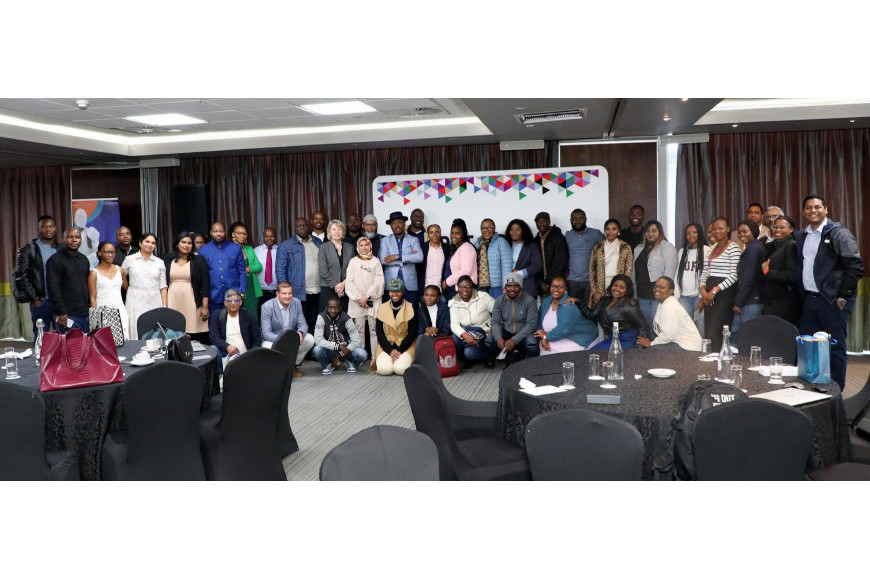Leading science, technology, engineering, and mathematics (STEM) publisher, Elsevier partnered with the Durban University of Technology Library and Research and Postgraduate Support Directorate to host the Future Research Symposium for the region. This annual event is designed to empower researchers with valuable insights and skills that are pivotal in advancing their capacity in the ever-evolving landscape of research and publishing. Stakeholders from the Durban University of Technology. University of KwaZulu Natal, Mangosuthu University of Technology, and University of Zululand participated in this thought-provoking event.
The symposium kicked off with the welcoming address by Dr Malefetjane Phaladi, the DUT Library Director, who provided a reflection of the Library’s SMART strategy, and future plans to support the research enterprise more effectively. He further iterated the important role that academic libraries play in promoting social justice and equity of access to scholarly information, by acquiring and promoting transformational agreements through partners such as Elsevier, that allow researchers to publish their articles, without paying article processing fees. “As the Library, we continue to support the DUT research enterprise in a manner that is open, developmental, inclusive, impactful, transformative, and sustainable,” said Dr Phaladi.
The partnership between the Library, Research and Postgraduate Support Directorate and Elsevier is one of many strategic initiatives that have been developed to build the capacity of our researchers, increase the visibility of our research, and enhance our research impact in critical areas that improve the lives and livelihoods of our people.
This was followed by the keynote address by Dr Nomcebo Mthombeni, the Interim Director for Research and Postgraduate Support Directorate. Her talk on “Charting a Transformative Research Agenda: Building an Inclusive, Impact-Driven Knowledge Ecosystem in South Africa” challenged researchers to rethink the role of research in addressing societal challenges such as poverty, water insecurity, food resilience, youth development, and economic transformation. She advocated for a university model that is both locally relevant and globally competitive. Elsevier’s Senior Customer Success Consultant, Lucia Schoombee, and Customer Success Manager, Daneshree Moodley, discussed South Africa’s scholarly trajectory and emerging opportunities in their talks by sharing advice and smart strategies on how to get published.
One of the highlights of the day was a presentation from UKZN’s Professor David Lokhat, who serves as the Editor of the South African Journal of Chemical Engineering. His talk provided deep insights from the perspective of a journal editor. Prof Lokhat left participants with practical tips for journal submissions, as well advice on the use AI for research articles.
The programme ended with a panel discussion on: “The implications of Generative Artificial Intelligence in postgraduate research”. Professor Sarasvathie Reddy from the School of Education at UKZN facilitated the discussion. The panel consisting of Dr Jean Damascene Mvunabandi and Mr Ebrahim Asmal from DUT, Professor David Lokhat from UKZN and Dr Kavitha Behara from MUT explored the transformative potential of generative AI tools such as ChatGPT and image generators in postgraduate research. Key sub-themes included ethical considerations, supervisory responsibilities, and the future trajectory of research methodologies.
The symposium successfully fostered dialogue, collaboration, and forward-thinking strategies among researchers and stakeholders. It reinforced the importance of inclusive, impact-driven research and highlighted the growing relevance of AI in academic inquiry.
DUT would like to thank Elsevier for providing a platform for this critical dialogue, and all universities in the region for their participation.
Pictured: Participants at the DUT Elsevier Future Research Symposium.
Dr Vaneshree Govender/Mr Sagren Moodley

